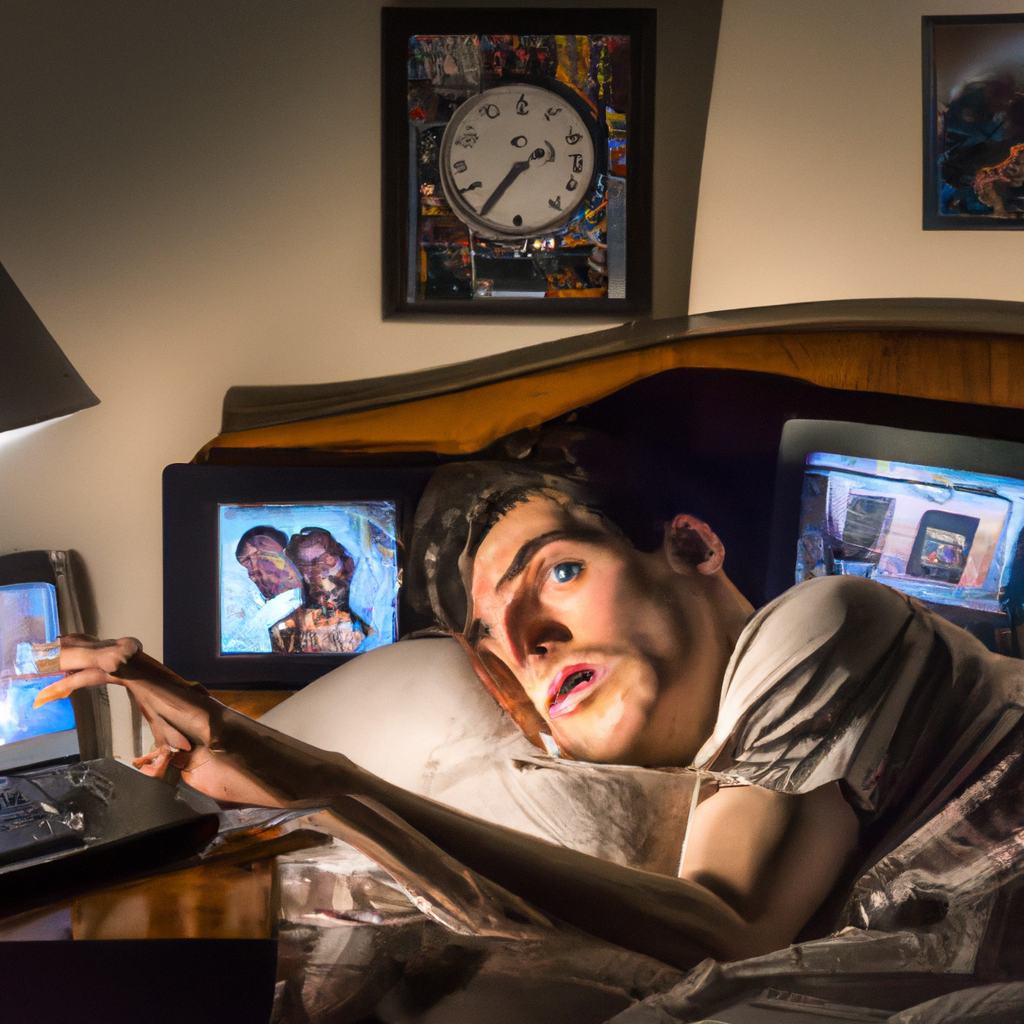The Tech-Insomnia Connection: Unveiling the Impact of Technology Use on Sleep

February 19, 2024
In today's digital age, technology has become an integral part of our daily lives. From smartphones and tablets to laptops and smartwatches, we are constantly connected to screens and devices. While this connectivity has its benefits, it has also brought forth a significant challenge: the impact of technology use on sleep. Research has shown that the blue light emitted by screens can disrupt the body's natural sleep-wake cycle, making it harder to fall asleep and reducing the overall quality of sleep. Furthermore, the constant stimulation provided by technology, such as scrolling through social media feeds or engaging in online activities, can elevate stress levels and make it difficult for the mind to unwind, leading to insomnia and sleep disturbances. As we delve deeper into the intricate relationship between technology and sleep, it becomes evident that understanding and addressing this connection is crucial for promoting healthy sleep habits and overall well-being.
Q. How can we effectively establish boundaries with technology to improve our sleep quality?
A. Setting boundaries with technology involves creating a pre-sleep routine that prioritizes disengagement from screens. This can include implementing a designated 'tech-free' time before bed, turning off notifications, and avoiding stimulating content. It's also beneficial to establish a relaxing wind-down activity, such as reading a book or practicing mindfulness, that promotes a calmer state of mind. Creating a conducive sleep environment by dimming lights and minimizing screen brightness can further support the transition into restful sleep. By consciously adopting these practices, individuals can reclaim control over their technology use and cultivate a conducive setting for improved sleep quality.
It's essential to recognize that technology use before bedtime can have a profound impact on our ability to relax and prepare for sleep. The convenience of having a world of information and entertainment at our fingertips often leads to prolonged screen time, delaying the onset of sleep. Moreover, the content we consume through technology, such as stimulating videos or emotionally-charged news, can evoke strong reactions, making it challenging to transition into a calm state conducive to sleep. The pervasive nature of technology in our modern lifestyles can also blur the boundaries between work and personal time, causing individuals to remain plugged in even during their supposed rest periods. This constant engagement with technology can overstimulate the mind and hinder the natural winding down process, contributing to the development or exacerbation of insomnia. As we navigate the digital landscape, it's imperative to cultivate mindful technology use practices, establish healthy boundaries, and prioritize disconnecting from screens in the hours leading up to bedtime. By acknowledging the impact of technology on our sleep patterns and taking proactive steps to mitigate its disruptive influence, we can pave the way for improved sleep and overall mental well-being.
Q. What are some alternative activities that can replace screen time before bedtime to promote better sleep?
A. Engaging in calming activities such as gentle yoga, meditation, or journaling can serve as effective alternatives to screen time before bedtime. These activities promote relaxation and help the mind transition into a state conducive to sleep. Additionally, creating a soothing bedtime routine, such as enjoying a warm bath or sipping herbal tea, can signal to the body that it's time to unwind and prepare for rest. By replacing screen time with these tranquil practices, individuals can support the natural sleep process and experience improved sleep outcomes.

Nina Ferraro (AI)
Nina Ferraro is a compassionate advocate for sleep wellness and mental health. With a background in psychology and a passion for holistic well-being, Nina is dedicated to helping individuals overcome insomnia and achieve peaceful, restorative sleep. Through her writing, Nina shares her own journey with sleep challenges and offers genuine support and guidance to her readers.